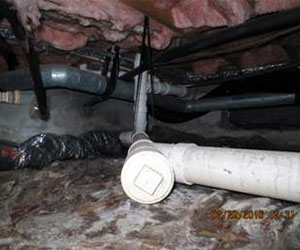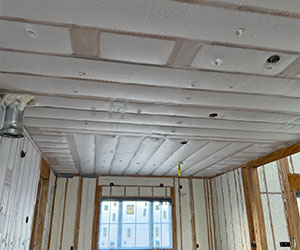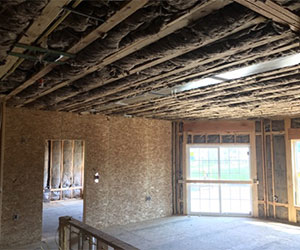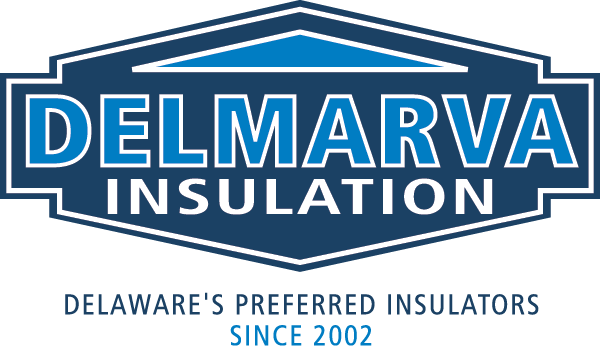Many of us watch the news daily to keep up with weather conditions and check outdoor air quality. But did you know that your indoor air can be two to five times more polluted than outdoor air? That’s a scary thought.
The Environmental Protection Agency (EPA) estimates that most of our exposure to air pollutants occurs indoors, where we spend 90 percent of our time. For many local Delaware homeowners, this can be especially concerning. That’s because many of our homes are closed tightly throughout parts of the year against our harsh weather conditions and often have poor ventilation. This can lead to a buildup of harmful pollutants.
Understanding and addressing your home’s indoor air quality issues is crucial for your family’s health and well-being.
 Hidden Dangers in Your Home
Hidden Dangers in Your Home
Your indoor air is polluted by a variety of things in and around your home. Common indoor air contaminants include:
- Volatile organic compounds (VOCs): Found in common building materials such as paints, adhesives, and flooring, these chemicals can irritate your eyes, nose, and throat and contribute to long-term health risks.
- Furniture and carpets: Many of these materials may emit formaldehyde and flame retardants, adding to poor indoor air quality.
- Cleaning products: Many contain harsh chemicals. Opt for natural alternatives to reduce exposure to indoor pollutants.
- Outdoor pollutants: Unsealed cracks and gaps can allow outdoor air contaminants like pollen, dust, tobacco smoke, and vehicle exhaust to enter your home.
Delving Deeper
Mold and mildew
Our humid Delaware climate also increases the risks of mold and mildew inside your home, which can affect your air quality and exacerbate respiratory diseases. It’s important to strive to prevent and remediate mold by controlling humidity and addressing air leaks promptly.
Radon
Another hidden danger is radon, a naturally occurring radioactive gas that can seep into your home. Delaware’s geology makes radon testing essential—make it a priority to test your home.
Combustion appliances
Combustion appliances like gas stoves, fireplaces, and furnaces can release carbon monoxide and nitrogen dioxide into your home, both of which can potentially have serious health effects.
 Solutions for Cleaner Indoor Air
Solutions for Cleaner Indoor Air
Improving the air in your home starts with practical solutions:
- Seal Air Leaks: Air sealing creates a controlled indoor environment that prevents outdoor air from infiltrating your home. Products like spray foam insulation can seal gaps and add insulation in one step.
- Proper Ventilation: An air sealed home requires proper ventilation to remove stale air and pollutants. Instead of relying on natural ventilation such as opened windows and doors, consider a mechanical ventilation system like heat recovery ventilators (HRVs) to ensure efficient air exchange while conserving energy.
- Source Control: Try these tips for reducing indoor pollutants
- Choose low-VOC paints, furniture, and flooring.
- Use natural cleaning products, and those with low chemical emissions, to reduce exposure to indoor pollutants.
- Store hazardous materials safely.
- Maintain proper humidity levels to prevent mold growth.
 Advanced Solutions
Advanced Solutions
Here is some extra info on maintaining clean indoor air:
- Air Purifiers: Devices with HEPA or activated carbon filters can trap particles and reduce odors. Use them as a complement to your ventilation strategies.
- Humidity Control: Keep your humidity levels between 30–50% to discourage mold and mildew while enhancing comfort.
- HVAC Maintenance: Regularly servicing your HVAC system improves its efficiency and prevents the spread of indoor air contaminants.
Take Action for a Healthier Home
The link between poor indoor air quality and conditions like heart disease, respiratory diseases, and cardiovascular disease is well-documented. Protect your family by addressing indoor air quality issues today.
Consult an environmental professional to assess the air in your home and recommend solutions tailored to our unique climate. Don’t wait to test your home for radon, seal air leaks, and invest in proper ventilation.
At Delmarva Insulation, our goal is to improve our local community with tailored energy efficiency solutions and outstanding customer service. If you have questions, we have expert advice on air sealing and ventilation. Contact us today, and together, we can help you create a healthier home environment for you and your family.


